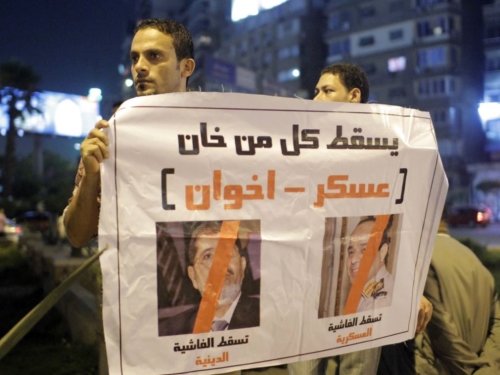
This article was originally published by the Institute for Security Studies (ISS) on 7 July 2015.
The recent death sentence passed down on former Egyptian president Mohamed Morsi, along with 106 others, is far from being the only politically motivated conviction made by the Egyptian courts. Mass trials have become common since the July 2013 coup, which ousted Morsi, Egypt’s first democratically elected president.
Collectively, these court decisions have raised serious questions about the independence of the judiciary, and suggest that the courts are merely an extension of the military regime, rather than an independent arm of the state.
Characteristic of these trials is the lack of due process throughout investigation and trial proceedings, the absence of objective evidence presented during trials and increasing numbers of defendants held incommunicado without access to legal representation. Lack of transparency is also evident, with courts refusing to make judgements public, proof that the judicial functions in the country are fast becoming politicised.

